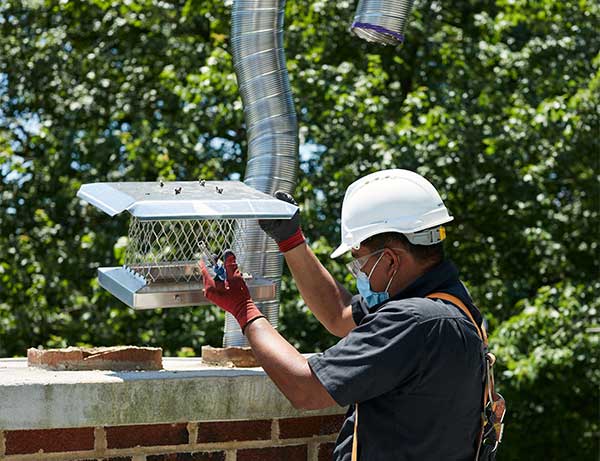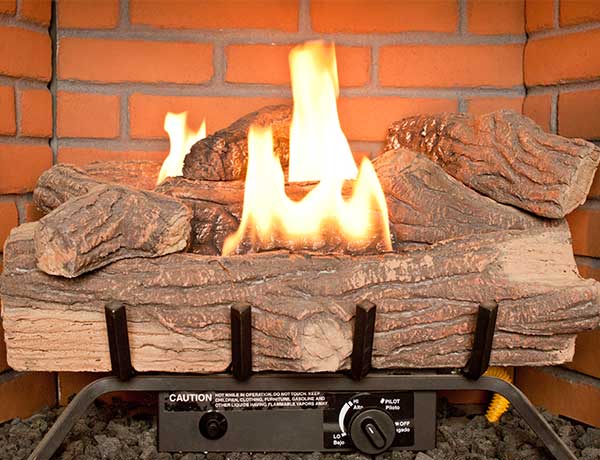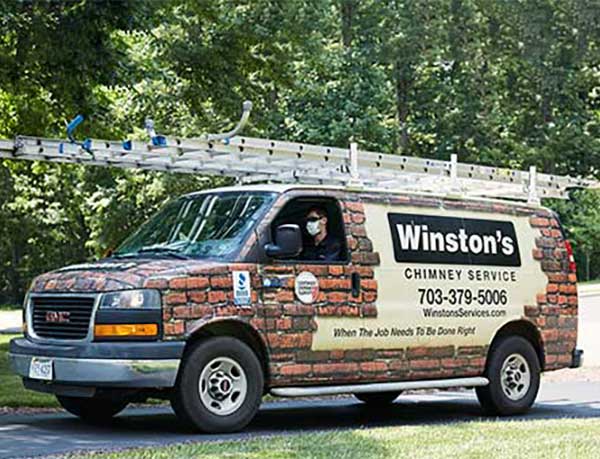That’s a great question! Most people love a good DIY project and there are lots of YouTube videos and articles about how to install a gas line. So, you can’t help but think, how hard can it be?
…we’d always advise you to leave your gas line installation needs to the professionals.
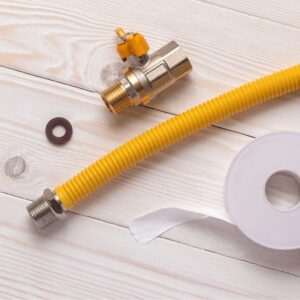 It is kind of like when you were a kid, and your parents asked you, “If your friends jumped off a bridge, would you?” Just because someone else installed a gas line by themselves without issues, doesn’t mean you should try too.
It is kind of like when you were a kid, and your parents asked you, “If your friends jumped off a bridge, would you?” Just because someone else installed a gas line by themselves without issues, doesn’t mean you should try too.
We get it, there’s a sense of pride that washes over you when you can stand back after a job is done and be able to give yourself a big pat on the back. Unfortunately, we’d always advise you to leave your gas line installation needs to the professionals.
So, instead of giving advice that could potentially put you in an extremely dangerous situation, I’m going to talk more about gas line installations and why you should find a Master Gas Fitter for all of your gas insert and fireplace installation needs.
Why Shouldn’t I Install a Gas Line Myself?
Anytime you’re dealing with gas and don’t have the experience necessary to do so, you are putting yourself in a situation where you can cause great damage and safety risks. Working with gas lines is extremely dangerous, and if you aren’t trained properly to handle these risks – or even know how to take the necessary precautions – you could end up with a gas leak that could lead to poor air quality, fires, or even an explosion.
Along with safety hazards, there are a few other reasons why you shouldn’t install a gas line yourself.
- Legal Compliance: Local safety codes are in place to ensure proper installation is done, maintenance is up to date, and safety standards are met. Most people aren’t familiar with these codes and can’t guarantee all the necessary legal requirements are met.
- Technical Expertise: Professionals have to go through extensive training to become certified to work on gas lines. They understand gas line sizing, pressure regulation, pipe materials, and connection methods. There’s much more to it than running a line and connecting it to an appliance.
- Proper Tools & Equipment: Gas line installations require specific tools and equipment that aren’t typically found in most garages. Attempting to install a gas line without the proper tools and equipment can lead to errors, leaks, or further damage.
- Insurance Coverage: If something goes wrong while installing a gas line yourself, your insurance may decline to cover you. We all know seeking medical attention without insurance is a hefty bill no one wants to be stuck with.
- Potential Health Risks: One little gas leak can lead to carbon monoxide poisoning with your loved ones. Only a professional can ensure the gas line is installed properly and vented so the risks of gas leaks are minimized.
Of all the reasons you shouldn’t install gas lines yourself, the most important one would be the peace of mind you get from being confident that the installation was done correctly. Safety of you and your loved ones is a bigger priority than the pride you feel after accomplishing this type of job yourself.
What Is the Process of a Gas Line Installation?
Because of the risks involved with dealing with gas, there are quite a few steps involved when it comes to installing a gas line. Here is a general overview of what to expect:
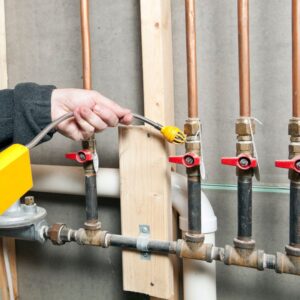 Preinstallation: A Master Gas Fitter will arrive and assess the gas needs for all intended appliances that will be connected. They will determine the best location for the gas line, while taking into consideration local building codes, accessibility of the gas line, and any necessary permits.
Preinstallation: A Master Gas Fitter will arrive and assess the gas needs for all intended appliances that will be connected. They will determine the best location for the gas line, while taking into consideration local building codes, accessibility of the gas line, and any necessary permits.- Determine appropriate material and sizing: Did you know there are a few different materials commonly used for gas piping? The most common materials include steel, copper, or flexible corrugated stainless steel tubing. A Master Gas Fitter will determine the appropriate pipe size based on the gas load requirements and length of the gas line. Then, they will figure out the most direct and efficient route.
- Installation: The installation process begins with turning off the gas supply to the property. Then, the Master Gas Fitter will install pipes, fittings, and connectors, while also ensuring that all connections and joints are sealed correctly.
- Pressure Test: A pressure test is performed to ensure there are no leaks in the gas line.
- Inspection and approval: An inspector will examine the gas line installation to make sure it is in compliance with building codes and safety standards. If it passes inspection, final approval will be given, and your gas services will be turned back on.
As you can see, extensive knowledge with gas line installations is required to ensure not only safety and compliance, but also to ensure you get the highest levels of efficiency possible.
Who Do I Call to Install a New Natural Gas Line?
In a tough economy, when it’s tempting to consider installing a gas line yourself to save on installation costs, we believe this isn’t a time to be thrifty – especially when it puts the safety of your household at risk. Rather, trust the experts at Winston’s Chimney Services to handle the task of installing your gas line.
Call us today at 703-379-5006 or schedule an appointment online.

